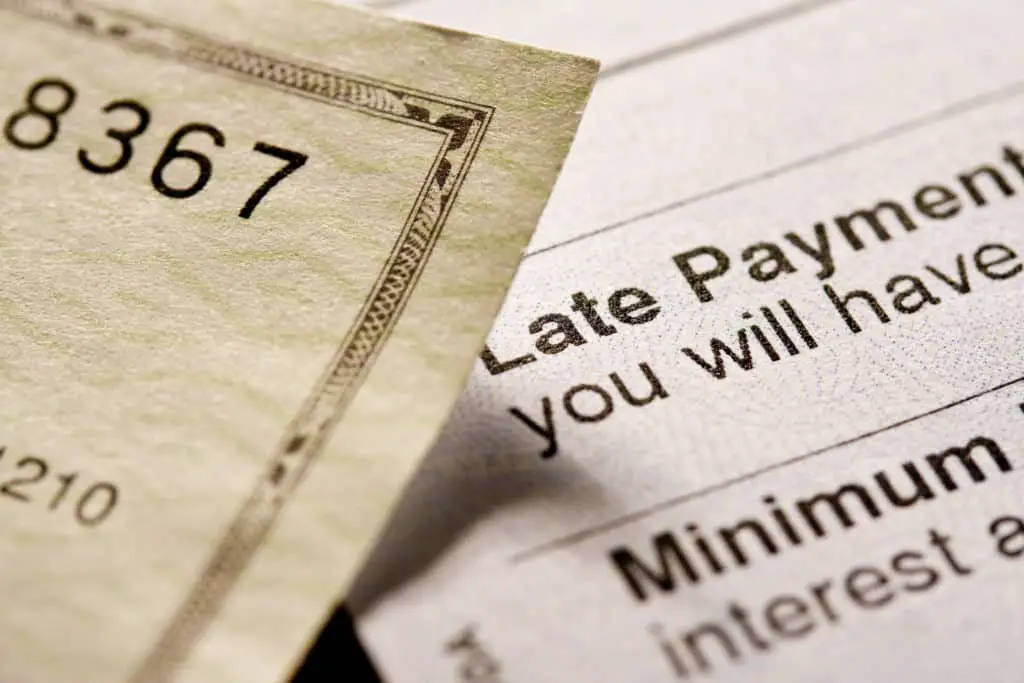
Life doesn’t always go as planned. Sometimes there are unfortunate things that come up that put you in a bind for your bills and monthly expenses. Your rent for your apartment is that one bill that hangs over your head each month without fail. You can cancel your TV, stop your internet, and even cut back on your cell phone use, but it is hard not getting by without a roof over your head.
If you are a renter, chances are that at some point, you have come across the problem of paying your rent late. Perhaps it was on accident, you had to go away for a work trip and were gone for a week or maybe the bill just got shoved under some other papers and you didn’t see it. Or, maybe you are having a legitimate struggle in settling with your landlord.
Not paying your rent on time can have some long-lasting consequences for you as the renter. Regardless of whether you failed to make a payment by mistake or because you are having difficulty paying your bills, there are several things you need to know about how to handle the situation. There are key things that you should absolutely do, and a few you should avoid at all costs.
Let’s see how non-payment can affect you and some of the things you can do to mitigate any negative consequences.
Not Paying Your Rent Costs More Than Just Late Fees
Not paying your rent on time may not seem like a big deal to some people. After all, they have made late car payments, and phone payments, and medical payments and nothing really seemed to happen, why not make this month’s rent a few days late, what could it hurt?
Surprisingly, quite a bit. Not paying your rent on time can follow you around for years and make it extraordinarily difficult for you to not only rent another apartment but also secure financing for a car or house.
The first thing that you are going to get tacked on is a late fee. Now, most states have a maximum late fee that can be charged to a tenant, it is still going run you 5-10% of your total monthly rent. If you wanted to spend more per month on an apartment, you would have done so from the beginning. These are needless fees that can easily be avoided just by paying your rent on time.
Remember, when you signed the lease agreement originally, you went into a legally binding contract that obligates the landlord to provide you with housing, and you to provide the landlord with rent, on time, each month. Going back on this agreement is not only bad for you in the short term, but in the long term as well. There are a couple of ways that this can haunt your record for some time to come.
Credit Score
Most landlords have many units in their apartment complex. They, like other landlords, are always on the lookout for the best tenants possible to fill their units. This means that they want to have access to, and be able to contribute to, the most up to date and accurate databases of information available.
The most comprehensive way to do this is to access a tenant’s rental record and credit score. Most landlords frequently report tenants who do not pay the rent on time to the credit bureaus. This means that if you are making a late payment, that late payment is going to stay on your record for years and is going to take quite a track record of making on-time payments to make that go away.
Lowering your credit score is also going to hurt you with any other lending you want to do. If you want to go to the bank and get a loan for a car or a house, and you have a low credit score, you are going to run into problems.
First, the lender may not lend to you at all. A low credit score means you are more of a risk of not paying back, or defaulting, on your debt obligation. Lenders, like landlords, are looking for good customers, and this means customers that have a track record of paying back all of their debts and paying them back on time.
Secondly, lenders are going to charge you more interest rate for the money that you do borrow. Whether it is money you want to take out for that new car you have been wanting, or maybe just to open a new credit card, the lower credit score you have means the higher interest rate the lender is going to charge you.
Keep in mind, this isn’t something personal against you, this is how borrowing money works with lenders of any type. A higher credit score means you are a good risk to take, and that you pay back your loans in full, and on time.
Letters of Referral
Many apartment complexes are now requesting references or letters of referral when you are applying for a new apartment. They want to be able to talk to the manager or landlord at the last place you stayed and perhaps another person or two in your life, that can vouch for your character.
If you built up a long history of late payments, the landlord probably isn’t going to give you a letter of referral at all. But no doubt they will tell your new landlord your payment history when they call to follow up on what kind of a tenant you were. Landlords call each other all the time to verify how good a previous tenant was for them when they are trying to put in an application at their complex.
In the same way, personal and professional references are going to be hard to come by. If they know that you haven’t paid all of your debts back, or have moved from place to place around town because of a poor track record of paying your rent, they are probably not going to put their names on a paper saying they vouch for you.
These letters of referral are important not just in renting a new apartment either now or in the future, but if you want to look for a new job, take a loan out for a car, or a hundred other things.
Being of good character can make or break a situation in life you may not even foresee right now.

4 Things To Do To Mitigate The Damage Of Late Payment
Communicate
The most important thing you can do if you find yourself in this situation is to communicate. Be accessible for the landlord or manager to get ahold of you. They are the only ones in a position to give you leniency at this point, keeping on their good side is an absolute must! This means not avoiding their calls or texts and being open and honest with them about your situation.
Too often, tenants that don’t pay their rent just disappear, either until they can pay their rent again or for good. There is little more frustrating to a landlord than a tenant who both doesn’t pay the rent and then refuses to take their calls.
If you are willing to pick up the phone or answer their texts, it tells them that you are aware of the situation and that you aren’t just going to bail out on your obligation. Your landlord is going to respect this and more than likely cut you some slack, even if they aren’t going to get their rent for a week or two.
Make an Effort to Pay Something
Whether you are out of town because of business or family, your landlord is going to appreciate that you are at least trying to pay. Today, there are many apps you can send money through quickly and easily. Ask them if they would take payment through one of these as you are not physically there to provide the payment.
If you can’t make the entire payment, pay something. You need to show your landlord that they are the last people on your list who are getting paid in your life. If you give good reason to your landlord to report you to the credit agency, they will. And remember, this is the one thing that you are trying to avoid at all costs!
If possible, pay at least part of your rent and work out how to pay the rest up at another time.
Giving Your Landlord Another Excuse? Not A Good Idea
Trust us, your landlord has heard every excuse under the sun. Twice. Your excuse, no matter how valid or made up, probably isn’t going to hold much water with them.
Your landlord can’t call up the mortgage company and give them an excuse that your roommate moved out or you have sudden health costs or you sent money to your kids and that is why you couldn’t pay the mortgage. They must pay it regardless of what excuses their tenants bring them.
Your landlord is looking for honesty and a solution
Honesty is going to go a long way in getting leniency from your landlord. If you are honest with them and give them a solution to when you will be able to pay the rent, more than likely they are not going to up and report you to the credit agency.
The times that does happen is when the tenant is not paying the rent on time, not returning phone calls or answering texts, avoiding the manger and landlord at the complex, and making a bunch of excuses of why they can’t pay their rent that month.
Remember that you entered into the legal obligation when you rented the apartment, so coming up with the money for rent, and paying that rent on time, is your responsibility. Tell them that you are sorry that you couldn’t make the payment, how you are going to pay, and that it won’t happen again.
We are all taught when we are small that paying your debts on time is your responsibility. And, it is a sign of respect to the other person you are in debt to that you consider them highly enough that you make it a priority to fulfill your obligation to them.
Not paying your rent on time can have ramifications that are much farther reaching than just getting a small late fee tacked on. Landlords frequently are reporting non-payers to the credit bureaus and late payments here can follow you around for years, making it difficult, and more expensive, to obtain a loan for your next car or house.
Make sure that if you do have to pay your rent late to tell your landlord about it as soon as possible. Be honest and open with them and don’t give them excuses, they have heard them all. Your landlord is a person too and more than likely, he is going to have some empathy towards you. It is your job to make sure he can have empathy for you.
Essentially, you are trying to do all you can to preserve both your rental record and your credit score, the two things that can follow you around for a long, long time.
